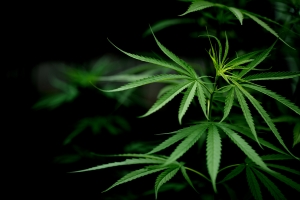What is Medical Marijuana?

What is medical marijuana? It has over 100 chemical compounds that interact with the endocannaboid system within our bodies. The two which hold the most value in the medical community are THC and CBD.
CBD (which stands Cannabidiol) and THC (which stands for delta-9-tetrahydrocannabinol).
CBD has little to no intoxicating properties and is helpful in relieving insomnia, anxiety, spasticity, and pain in treating potentially life-threatening conditions, such as epilepsy.
THC is responsible for marijuanas’psychoactive effects, and it is also responsible for many other health effects, including the reduction of nausea and vomiting, appetite stimulation, reduction of pain and inflammation and increase in muscle relaxation.
What does medical marijuana treat?
Some of the most common uses of medical marijuana in the United States is for pain control. While marijuana alone is not strong enough for severe, acute pain (for example, post-operative pain), it is quite effective for the chronic pain that affects hundreds of thousands of people.
It has proven this natural pain reliever much safer than opiates (it is impossible to overdose on and far less addictive) and can take the place of NSAIDs such as ibuprofen or Naproxen, if people cannot take them due to problems with their kidneys, ulcers or reflux.
Marijuana as been shown to ease the pain associated with multiple sclerosis, and nerve pain in general, which is often difficult to treat and the medications that are effective are heavily sedated and addictive.
Using Medical Marijuana On Long Island
Patients claim that marijuana allows them to resume their previous activities without feeling completely out of it and disengaged.
Marijuana is also a great muscle relaxant, and people swear by its ability to decrease tremors in Parkinson’s disease. It is also used successfully for fibromyalgia, endometriosis, interstitial cystitis, and most other conditions where the common pathway is chronic pain.
Other uses include but are not limited to managing nausea and weight loss, and treatment of high eye pressures in glaucoma patients. A highly promising area of study currently ongoing is its use for PTSD in veterans who are returning from combat zones.
Medical marijuana is also reported to help patients suffering from pain and wasting syndrome associated with HIV, as well as irritable bowel syndrome and Crohn’s disease.
How do I know if I have a qualifying diagnosis in New York?
The process is simple. Schedule an appointment with our New York State Certified Providers. The consultation is free and if you do not qualify, you will not be charged.
Qualifying For Medical Marijuana In Long Island
Our providers adhere strictly to the New York State Guidelines and maintain meticulous records to ensure your safety and privacy. We offer tele-health services by appointment. If you have a qualifying event/diagnosis, the card will be issued by end of the business day. The process is quick and easy.
What if I am the caregiver for a disabled child or adult that cannot consent?
A designated caregiver can be assigned to those that are unable to consent or apply on their own. The patient, as well as the caregiver, will be assigned a card.
What Is The Cost?
The cost for the initial consult with the provider, the registration via NYS website, and the card is $250. Certification is valid for 1 year. Recerts are $100. We do not accept insurance at this time.
